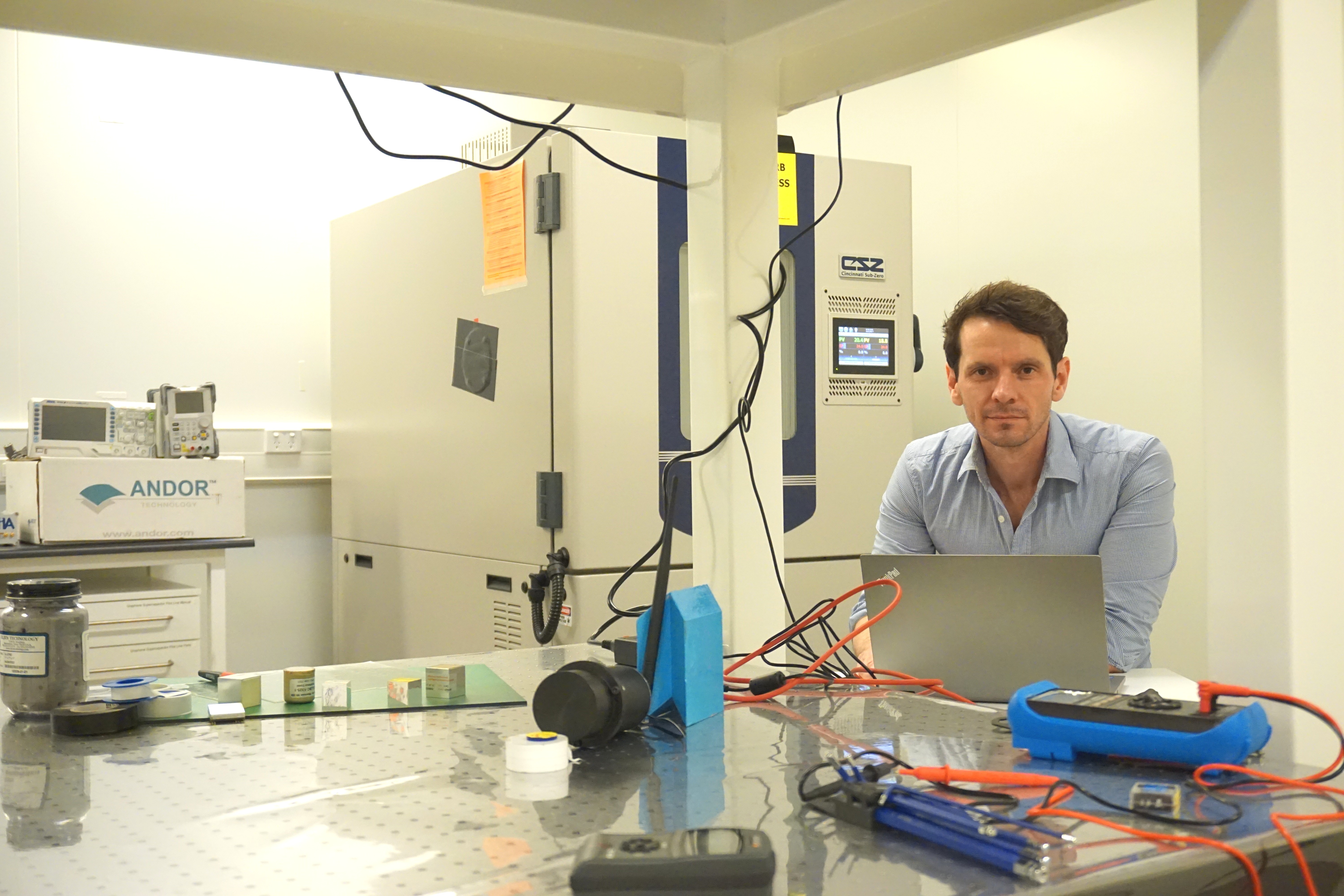New program to set national standards for radiotherapy treatment means better health outcomes of one million Australians

Swinburne's Associate Professor Jeremy Brown is part of the team who will design, develop and commission these primary dosimetry standards.
In summary
- Swinburne, CSIRO, and the Australian Radiation Protection and Nuclear Safety Agency have partnered on a new program to develop the next generation of national standards for radiotherapy.
- These new standards will help to reduce the occurrence of radiotherapy accidents.
- Swinburne's Associate Professor Jeremy Brown is helping to design, develop and commission these primary dosimetry standards.
Swinburne University of Technology, CSIRO, and the Australian Radiation Protection and Nuclear Safety Agency (ARPANSA) have partnered on a new program to develop the next generation of national standards for radiotherapy treatment in Australia.
These new standards will help to reduce the occurrence of radiotherapy accidents for approximately one million Australians over the next 30 years. By minimising both under-dosing and over-dosing radiotherapy treatments, these measures will play a crucial role in safeguarding patient health and improving health outcomes. This set of primary standards will be used to assess the performance of new radiotherapy techniques and cross-check each hospital's unit devices to directly impact clinical practice at the national level.
Swinburne project lead, Associate Professor Jeremy Brown, is part of the team who will design, develop and commission these primary dosimetry standards in line with federal regulatory guidelines.
“Our cross-disciplinary approach will leverage both experimental and computational methods to deliver a set of standards that ensure the quality of healthcare delivered cancer treatment in Australia,” he says.
“I’m thrilled to be part of this world leading team. Our work is not only a huge milestone in Australia’s research and healthcare, but it will have a real impact on a million Australians and their families who are already battling extremely strenuous circumstances. This is the type of program that illustrates the true strengths of Swinburne: academia and industry working together towards delivering real world technology to everyday Australians.”
This research has been funded by the CSIRO Industry PhD Program (iPhD) which is a collaboration between CSIRO, Swinburne University and ARPANSA. The CSIRO iPhD Program is part of the Federal Government’s University Research Commercialisation Action Plan.
ARPANSA’s Dr Duncan Butler says the standards will improve the accuracy of radiation measurements in Australia and support new types of radiotherapy, such as protons and high dose-rate techniques.
“This work makes an important contribution to ARPANSA’s efforts to support patient safety.”
This project will see Swinburne, CSIRO and ARPANSA collaborating to bring together their strengths in physics, medicine and technology. The team aims to use this research project's success to establish an Australian leading program and seek government-industry sponsored funding to develop additional advanced dosimetry tools to support the deployment of new radiotherapy modalities within Australia.
“External beam radiotherapy is one of the most popular approaches in the treatment of cancer in Australia. It is crucial that our team and governing bodies continue to work towards the most optimal radiotherapy treatment possible”, says Associate Professor Brown.
-
Media Enquiries
Related articles
-

- Student News
- Science
- Sustainability
Introducing tomorrow’s global science communicators
Start Talking is Swinburne’s unique video-based public speaking competition, exclusively for undergraduate students
Monday 08 December 2025 -

- Astronomy
- Technology
- Health
- Science
- University
- Sustainability
- Engineering
Swinburne highly cited researchers reach the top in 12 fields
Ten Swinburne academics have been named on the Highly Cited Researchers 2025 list, released by Clarivate
Tuesday 02 December 2025 -

- Science
- Engineering
Swinburne secures grant to advance next-generation metamaterials research
Swinburne physicist Dr Weibai Li has received a Discovery Early Career Researcher Award from the Australian Research Council
Tuesday 02 December 2025 -

- Technology
- Health
- Science
- University
$1.2m ARC funding to boost national X-ray spectroscopy capability through Swinburne and QUT partnership
Swinburne has secured $1.2 million in the latest Australian Research Council Linkage Infrastructure, Equipment and Facilities scheme round
Tuesday 02 December 2025 -

- Astronomy
- Technology
- Science
- Engineering
Meet Swinburne’s Roo-ver Mission team
Roo-ver will be Australia's first lunar rover, and it’s being designed, built and tested in Australia. Swinburne is playing a key role in the design and construction of Roo-ver, through its involvement in the ELO2 Consortium.
Wednesday 26 November 2025

